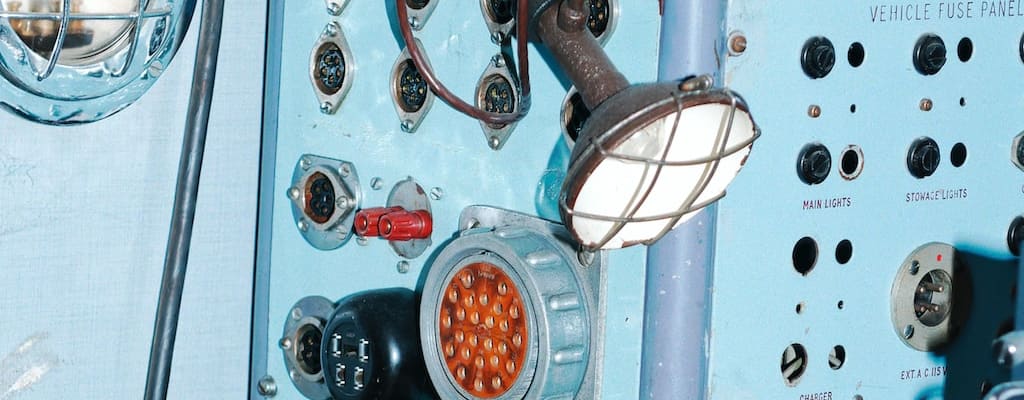clamp down on: Idiom Meaning and Origin
What does ‘clamp down on’ mean?
The idiom "clamp down on" means to take strict or decisive action to control or suppress something, usually referring to a situation or behavior that is seen as problematic or undesirable.

Idiom Explorer
The idiom "knuckle down" means to get serious and focused, usually in order to complete a task or achieve a goal. It implies buckling down and applying oneself diligently and determinedly. The idiom is often used to urge someone to start working hard and stop procrastinating.
The idiom "knock down" means to forcefully bring someone or something to the ground. It can also refer to reducing the price or value of something significantly.
The idiom "keep a lid on" means to maintain control over something, especially to prevent it from becoming known or causing trouble.
The idiom "hold the reins" means to have control or be in charge of a situation or group of people.
The idiom "hold fast" means to firmly grasp or cling to something or someone, both literally and metaphorically, symbolizing determination, strength, and loyalty.
The idiom "hold down" means to maintain a job or position, usually requiring effort or responsibility.
The idiom "hold by the button" means to have control or influence over someone or something. It implies having a firm grip or being in a position of power.
Uncovering Connotations
The idiom "clamp down on" is commonly used in the English language to signify a strict or forceful action taken to control or suppress something. It implies a crackdown, often carried out by authorities or institutions, on a particular behavior, practice, or situation. When used literally, "clamp down on" refers to the act of securely fastening or locking something in place with a clamp or similar device.
The origins of this idiom can be traced back to the physical act of using a clamp to firmly hold something in place. The image of a clamp exerting a strong grip becomes a metaphor for the powerful control that authorities or institutions may have over a situation or behavior.
Another possible origin of this idiom could be related to the historical use of clamps as instruments of punishment. Clamps were occasionally used in the past as a means of torture or to inflict pain and discomfort. This association between clamps and punishment may have influenced the figurative usage of the idiom as a metaphor for strict control or suppression.
In contemporary usage, "clamp down on" is commonly employed in discussions related to law enforcement, government regulations, and societal norms. It is often used to describe actions taken by authorities to curb illicit activities, enforce rules, or maintain order.
For example, a government might clamp down on tax evasion, a company might clamp down on unauthorized internet usage, or a school might clamp down on bullying. This idiom is frequently used in a political context, where governments or leaders employ it to gain public support by demonstrating their commitment to maintaining order and security.
However, it is important to note that the usage of this idiom can also be viewed critically, particularly in situations where it is employed to justify excessive use of power or curtailment of civil liberties.
One related idiom to "clamp down on" is "crack down". This idiom has a similar meaning and is often used interchangeably with "clamp down on".
"Crack down" refers to the vigorous enforcement of laws or regulations, typically with the goal of suppressing or eliminating a particular activity, behavior, or problem. It implies the use of force or strong measures to combat a specific issue.
For example, a government might crack down on drug trafficking, a company might crack down on employee theft, or a school might crack down on cheating.
"Crack down" shares similar connotations with "clamp down on" in terms of strict regulations, increased surveillance, and the use of stringent enforcement measures. Both idioms suggest a strong and forceful approach to controlling or suppressing a particular behavior or practice.
Another related idiom is "clip it". Although less commonly used, "clip it" is a phrase that conveys the idea of taking swift and decisive action to address a situation or prevent something from happening.
When someone is told to "clip it", they are being instructed to stop or cease a particular behavior or conversation. It is often used to quickly put an end to an argument, dispute, or escalating situation.
For example, if two individuals are engaged in a heated argument, a third person might say, "Hey, let's clip it and move on. This isn't getting us anywhere."
In the context of "clamp down on" and "clip it", both idioms emphasize the need for immediate action and resolution. While "clamp down on" suggests a more forceful and authoritative response, "clip it" focuses on the swift cessation of a situation or behavior.
As we can see, idiomatic expressions like "clamp down on", "crack down", and "clip it" enrich the English language and allow for nuanced communication. These idioms provide us with colorful ways to describe actions, behaviors, and situations, adding depth and flair to our conversations and writing. Whether used in literal or figurative senses, these idioms add a layer of meaning and help us convey concepts with brevity and impact.
Example usage
Examples of how the idiom "clamp down on" can be used in a sentence:
1. The government is clamping down on tax evasion by increasing penalties and conducting more frequent audits.
2. The school has decided to clamp down on bullying by implementing a zero-tolerance policy and increasing supervision.
3. The police are clamping down on illegal street racing by conducting more patrols and issuing stricter penalties.
More "Enforcement" idioms



